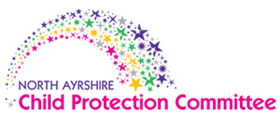Domestic abuse describes any behaviour that involves exerting control over a partner or ex-partner’s life choices and that undermines their personal autonomy.
It is an assault on their human rights. Although most victims are women, men can also suffer domestic abuse, and it can also occur in same-sex relationships. Children and young people living with domestic abuse are at increased risk of significant harm, both as a result of witnessing the abuse and being abused themselves. Children can also be affected by abuse even when they are not witnessing it or being subjected to abuse themselves. Domestic can profoundly disrupt a child’s environment, undermining their stability and damaging their physical, mental and emotional health.
The impact of domestic abuse on a child will vary, depending on factors including the frequency, severity and length of exposure to the abuse and the ability of others in the household (particularly the non-abusive parent/carer) to provide parenting support under such adverse conditions. If the non-abusive parent/carer is not safe, it is unlikely that the children will be. Indeed, children frequently come to the attention of practitioners when the severity and length of exposure to abuse has compromised the non-abusing parent’s/carer’s ability to nurture and care for them.
Useful Documents
Below we have a great selection of useful documents for you to download. Please click on the icon to begin the download.
Document Filters
- Other
- All
